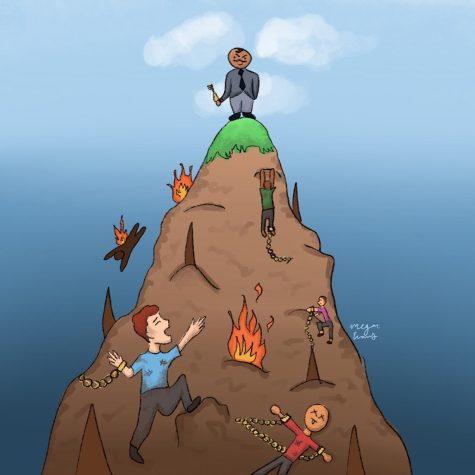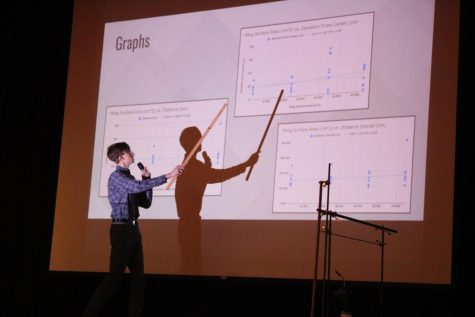Privacy vs. security: Is our security worth letting the government into our private lives?
Many of us remember the day Edward Snowden, former National Security Agency (NSA) member, revealed that the government was watching everything we did, from phone calls to emails to Internet search history. People were, and still are, livid about the situation. They claim that it infringes upon their rights called upon in the First and Fourth Amendments.
To recap, Snowden, then 30, worked for the NSA and discovered trace files of private conversation between citizens and foreigners to the United States. He fled, June 9, 2013, to Hong Kong to avoid arrest. The government filed against Snowden with the 1917 Espionage Act for “unauthorized communication of national defense information” and “willful communication of classified communications intelligence information to an unauthorized person” (Washington Post, 2013).
The 1917 Espionage Act, passed in June 1917, involves penalty terms for those who interfere with military, specifically recruitment of new members. This concern was raised around the time of the World War I.
In a 1919 case, Schenck v. United States, Congress reinforced their law to state that legislation, which may not be acceptable in ordinary circumstances, could be enacted when faced with a “clear and present danger” (United States History). The government viewed Snowden as a terroristic threat for leaking such sensitive information to the public.
The NSA had assumed its rightful power to be collecting said information after the USA Patriot Act was passed in 2001, six weeks after Sept. 11. This act was forced by the Bush administration to revise the original national surveillance system.
The Patriot Act increased government authority to generally “spy” on US citizens while simultaneously reducing the checks and balances systems to keep the judicial branch in line. Four different areas, specifically, improved greatly for the government and their ability to spy.
It granted a broadened allowance on record searches, secret searches, intelligence searches and the “trap and trace” method (ACLU). The American Civil Liberties Union defines the “trap and trace” method as an expansion to a Fourth Amendment exception that allows for spying.
The problem is this: how comfortable are we, as students or citizens of the United States, with allowing the government to blindly record and keep a database on all of our personal information? For some of us, that’s a lot of record. We can be caught tweeting, facebooking, snapchatting and instagramming every day. The NSA now has a record of every single thing you’ve ever done with your social media or phone in general.
“I feel that us [sic], as Americans, personally have the freedom that we should be able to do what we want in private,” Sophomore Jarrett Boyd said. He, like many other Americans, believes that we should feel safe and secure without the government having to watch every single thing that we do.
On the other hand, senior history teacher Mr. Nate Langelli feels like the government is doing no harm.
“I understand the argument people make for the privacy issue, but for me personally, I’m more the mindset [that] I have nothing to hide so it doesn’t really bother me that way,” Langelli said. These two viewpoints vary drastically. The issue is, though, does the government truly have the right to be watching us, even if we pose no threat?
As of May 9, 2015, Congress finally came to a decision marking the NSA’s actions as illegal under the Patriot Act, the same one which was originally used to justify the program. Section 215, which states that searches of private information must be approved by the attorney general, expires this upcoming June.
Appellate Judge Gerard E. Lynch argues that the NSA program “exceeds the scope of what Congress has authorized” (CNN Online). Congress is now divided on whether to continue with the NSA spying program or to end it completely.
Another Congress member, Sen. Marco Rubio of Florida, argues in response to Lynch saying that people misunderstand the NSA. He claims that the belief everyone has of the NSA continuously going through the information they collect is wrong.
The Congress is planning to pass the USA Freedom Act in response to the expiration of Section 215. This new act would “kill” the NSA’s dragnet collection of files and data. Furthermore, warrants will be required for any personal or private information to be collected from phones, computers or other electronic devices.
“I’m fine with the Patriot Act but the NSA doing illegal activities I’m not OK with. So, if [information] was obtained illegally, I would say they shouldn’t be able to use it,” Langelli said.
Senate Majority leader Mitch McConnell sides more with Rubio and is currently pushing to have the Patriot Act reauthorized. President Barack Obama, as well as about half of Congress, believes that the NSA program is necessary to keep us safe from terrorism.
The real question is, how much of our privacy and freedom are we willing to give up safety? Do we really need the NSA recording and having data on every event of our personal lives via phone or Internet will truly protect us from an out-of-country threat?








![Freshman Jordan Delon [left] and sophomore Jaden Winterhalter [right] round the final stretch as they run the 800 meter.](https://www.fhs-press.com/wp-content/uploads/2022/05/Sports-Track-Field-Pawlowski-475x317.jpg)



